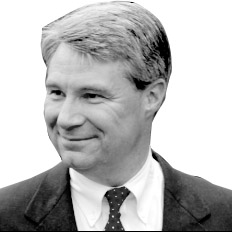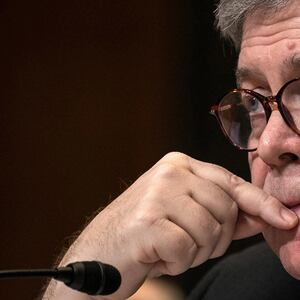I have served on the Senate Judiciary Committee for twelve years. I have never witnessed a performance like Attorney General William Barr’s on Wednesday. Here is what I saw.
First, his testimony was an astonishing exercise in dissembling. Barr gave a head-spinning explanation of why he did not disclose in House testimony the letter in which Robert Mueller forcefully pushed back on Barr’s initial summary of the Mueller report. He quarreled over whether his summary was a “summary.” He said Special Counsel Mueller’s concerns – expressed in the letter for everyone to see – were not concerns with Barr, but with the media. He said Justice Department policy against indicting a president wasn’t the reason Mueller didn’t conclude the President broke the law, when the report says the opposite. When Senator Harris asked if anyone at the White House asked or suggested that he open an investigation – which would be a massive abuse of power – he pondered the meaning of the word “suggest.” Those are just a few examples of his hair-splitting. It was a brilliant mind put to a low and disgraceful use.
Second is the loaded, Trumpian language Barr used – not the language I associate with prosecutors or high-ranking Justice Department officials. He said authorized Justice Department investigations are rightly called “spying” (a “good English word!”). I’ll venture that the 1990s Attorney General Barr never used that kind of language describing the work of the Justice Department. He said the media was responsible for the “faux outrage” it triggered. He repeated Trump’s tagline of “no collusion.” As has been noted in The Daily Beast, Barr is sounding more like Trump’s attorney than Americans’ top prosecutor.
ADVERTISEMENT
Third, we learned some odd things about how Barr managed the release of his summary and then the full report. He told Senator Harris that his charging decision on obstruction was based on the Mueller report – like the “pros memos” used by federal prosecutors to recommend criminal charges. But that would have given him only two days to make that decision. So he then told me that the Justice Department’s Office of Legal Counsel was in close contact all along with the Mueller investigation. That’s odd; I have served in the Justice Department and seen how the OLC operates. The OLC does not try cases or assess the sufficiency of evidence. It is the Justice Department’s in-house legal advisor, opining on complicated matters of law.
Perhaps it was coincidence that the head of the OLC, Steven Engel, received Barr’s unsolicited June 2018 memo arguing that the President cannot obstruct justice. Perhaps it was another coincidence that Engel invited Barr to a brown bag lunch with OLC lawyers immediately upon receiving the memo. Perhaps.
Finally, we learned the curious full story of Barr’s infamous March 24 “principal conclusions” letter—a document that provided a huge PR benefit for a White House eager to get out from under the cloud of the Russia investigation. For three weeks, all the public could see were Barr’s selective “principal conclusions.” In so doing, he engineered a PR bonanza for the president and his media allies.
Mueller’s team had provided Barr with material for him to release, minimally redacted and ready for the public, to help “assure full public confidence in the outcome of the investigations.”
Barr had a better idea: to let the president’s PR machine run wild for three weeks to set a phony narrative.
During his confirmation process, some held out hope that an Attorney General Barr would serve the American people first. They hoped he would uphold the traditions of the Justice Department and the law above all else. What was left of Attorney General Barr’s credibility as day broke on Wednesday had crumbled by day’s end. He is now a confirmed spin master for the president.
As if to acknowledge that truth, Barr decided late Wednesday against testifying in the House, to avoid questioning from skilled lawyers on the Judiciary Committee. That may have been the most honest thing he did all day.
Now, Congress must hear from the others who know the truth about Justice Department leadership’s handling of the Mueller report, Deputy Attorney General Rod Rosenstein and Special Counsel Mueller himself. I trust they will respect the rule of law and the Department’s tradition of apolitical service to the American people.
Sheldon Whitehouse is a U.S. Senator for Rhode Island, and former U.S. Attorney and state Attorney General.







